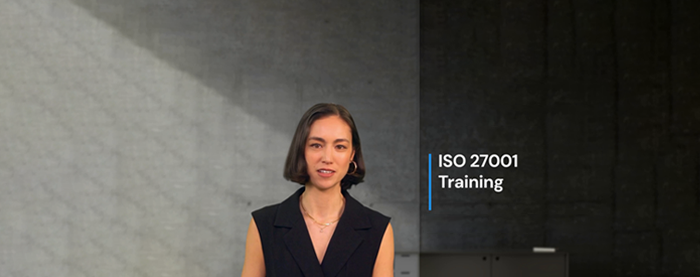
- News
- Customer loyalty through digital customer training
- News
- Customer loyalty through digital customer training

- News
Customer loyalty through digital customer training
Sustainable customer loyalty is more important than ever. Customer training is a good instrument for building loyalty through trust, consistency and security. The digital customer training finds its way directly to the front staff, transfers know-how where it is needed and helps solve standardized problems without service effort. High quality training is tailored to the needs of the customer and can be easily used by everyone.

The desperate attempts to stay in contact with customers is common in the business world. Brochures, directly addressed letters, e-mails or catalogues inundate the office desks with correspondingly poor success. Customer proximity is not achieved by sending flyers, targeting customer loyalty even less. To build up a trustworthy relationship between customer and company, factors that represent a real challenge during stimulus overload are decisive today. Other than direct relationships (trust through reliability, consistency and security), know-how transfer is an excellent instrument to retain customer relationships in today’s explanatory competition.
However, only specific training that is seen as valuable for a customer can build up a trustworthy and desired relationship between provider and seeker. It must be recognized that training can make a more efficient use of the purchased product and thus increase the overall success. With this in mind, the customer is also prepared to pay for a training course. However, training always means additional time expenditure. This particularly applies to internationally active companies as planned appointments and deadlines are taken seriously and are met on time. Classroom training on our own premises makes sense within the framework of a clear marketing strategy. Experience shows that often the “wrong” people are flown in – a “Reisli” (trip) as a reward for the superior. This must be avoided in order to increase the potential and knowledge of the personnel who will be in direct contact with the product.
Today’s digitalization offers new possibilities for this. Digital learning opportunities must be easy to use and support a variety of learning scenarios (70-20-10 model). For this reason, learning environments are needed that are available everywhere and at all times and designed for mobile use (Mobile First approach). The different types of learning formats must be defined within the framework of an educational concept: Is video learning the suitable transmitter, should nano- learning be used to solve problems on the machine or are COOCs (Corporate Open Online Courses) the right choice as a time-accompanied learning path?
The analysis of training needs forms the basis for the learning content to be produced. If these correspond to the needs of the customers and if the contents are produced in a high-quality and didactically meaningful way, the training courses can be used successfully. The customer profits through long-lasting or complex products with a wide range of usability and more staff experience. Due to satisfaction, the manufacturer benefits not only from customer loyalty but also from lower service costs during the warranty period.
With digital customer training...
Know-how transfer takes place directly with the personnel at the device
The customer benefits from more comprehensive usability
Can service costs be reduced during the warranty period
Increases the basis of trust to the customer
You are also welcome to make an appointment with us to discuss the subject.
About Swiss Learning Hub AG
Swiss Learning Hub AG is a full-service provider of digital learning for vocational education. The Swiss Learning Hub offers a comprehensive solution that covers the professional learning biography – from initial training to in-company training and tertiary education. Numerous industry associations, universities of applied sciences and over 8,000 companies use the digital platforms. The Swiss Learning Hub enables leading Swiss educational institutions to digitize their offerings and export them to international growth markets. With the implementation in China, which took place in the fall of 2019, a first important step in internationalization was made. The company is part of the CREALOGIX Group, a market leader in digital banking.
This communication contains forward-looking statements that may be subject to certain risks, uncertainties and changes that cannot be foreseen and are beyond the control of CREALOGIX Group. CREALOGIX can therefore make no assurances as to the accuracy of such forward-looking statements, their effect on the financial condition of CREALOGIX Group or the market in which shares and other securities of CREALOGIX Group are traded.
Medienkontakt
Timo Kind
Gerne vereinbare ich einen Interviewtermin mit der Geschäftsführung der Swiss Learning Hub AG für Sie. Bitte rufen Sie mich unter der Nummer +41 58 404 83 33 an oder senden Sie mir eine E-Mail: timo.kind@swisslearninghub.ch



